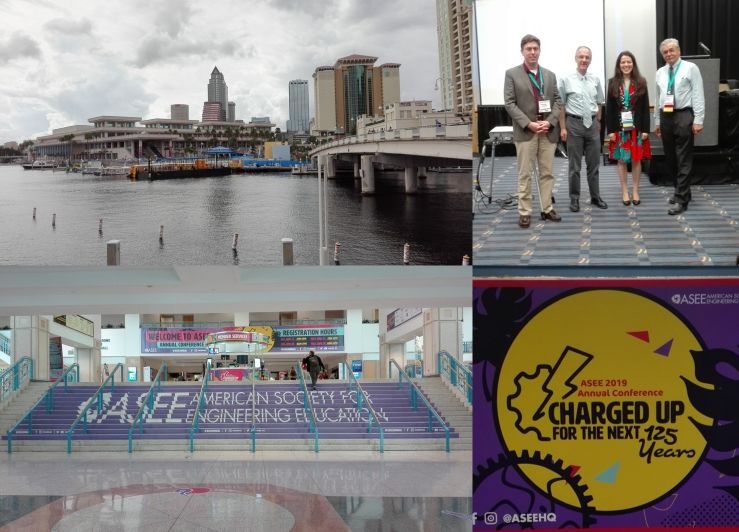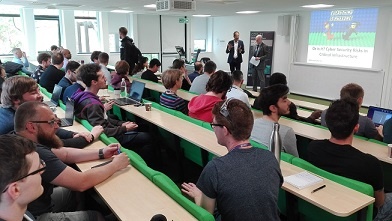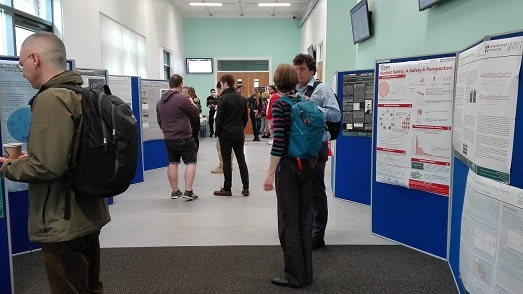Rhys Comissiong (Cohort 2) and Shaun Smith (Cohort 4) recently participated in SAE International World Congress Experience which was held from April 9th-11th at the Cobo Centre in Detroit, Michigan. The conference consists of a wide variety of technical sessions, keynote talks, leadership summits, seminars, networking opportunities and an exhibition where industry leaders such as Ford Nissan and Honda showcased their latest innovations.
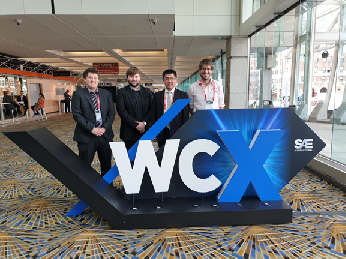
From left to right – Rhys Comissiong, Shaun Smith, Dr Dezong Zhao & Dr James Knowles at Cobo Centre
Rhys presented in the Sensor Fusion technical session on “An Assessment of a Sensor Network Using Bayesian Analysis demonstrated on an Inlet Manifold”. The paper was co-authored with Dr Thomas Steffen (supervisor) and Dr Leo Shead, Technical Lead on the project from Caterpillar Inc. The work consisted of using Bayesian statistics to analyse sensor information to understand how different sensor configurations affect variable estimation. The methods were applied to charge mass flow estimation on an internal combustion engine but can be used on to help control engineers design sensor configurations for a range of applications including autonomous vehicles.
Shaun presented “A Bifurcation Analysis of an Open Loop Internal Combustion Engine”, co-authored by Dr James Knowles and Dr Byron Mason. The talk focused on how tools from nonlinear science could be applied to engine modelling to complement any analysis. The technique provides additional insight to the system by qualitatively describing the systems behavior for many possible inputs in an efficient way. The work is interdisciplinary, so having presented a similar version of talk to a mathematical audience at a previous conference on nonlinear science, SAE WCX provided an excellent opportunity to demonstrate the work to attendees from the automotive industry.
In addition to providing their talks, the pair took advantage of the several opportunities available. Rhys engaged with industry experts at the exhibition showing the latest technological developments, as well as attending talks in connected vehicles and machine learning. Shaun attended various technical talks on vehicle dynamics & stability, areas directly relevant to his research interests.
For more information on SAE WCX visit: https://www.sae.org/attend/wcx
For more information about Rhys’s paper;
https://www.sae.org/publications/technical-papers/content/2019-01-0121/
For more information about Shaun’s paper;
https://www.sae.org/publications/technical-papers/content/2019-01-0194/
Rhys presented in the Sensor Fusion technical session on “An Assessment of a Sensor Network Using Bayesian Analysis demonstrated on an Inlet Manifold”. The paper was co-authored with Dr Thomas Steffen (supervisor) and Dr Leo Shead, Technical Lead on the project from Caterpillar Inc. The work consisted of using Bayesian statistics to analyse sensor information to understand how different sensor configurations affect variable estimation. The methods were applied to charge mass flow estimation on an internal combustion engine but can be used on to help control engineers design sensor configurations for a range of applications including autonomous vehicles.
Shaun presented “A Bifurcation Analysis of an Open Loop Internal Combustion Engine”, co-authored by Dr James Knowles and Dr Byron Mason. The talk focused on how tools from nonlinear science could be applied to engine modelling to complement any analysis. The technique provides additional insight to the system by qualitatively describing the systems behavior for many possible inputs in an efficient way. The work is interdisciplinary, so having presented a similar version of talk to a mathematical audience at a previous conference on nonlinear science, SAE WCX provided an excellent opportunity to demonstrate the work to attendees from the automotive industry.
In addition to providing their talks, the pair took advantage of the several opportunities available. Rhys engaged with industry experts at the exhibition showing the latest technological developments, as well as attending talks in connected vehicles and machine learning.Shaun attended various technical talks on vehicle dynamics & stability, areas directly relevant to his research interests.
For more information on SAE WCX visit: https://www.sae.org/attend/wcx
For more information about Rhys’s paper;
https://www.sae.org/publications/technical-papers/content/2019-01-0121/
For more information about Shaun’s paper;
https://www.sae.org/publications/technical-papers/content/2019-01-01






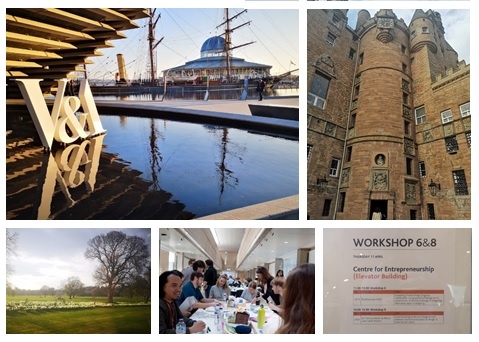
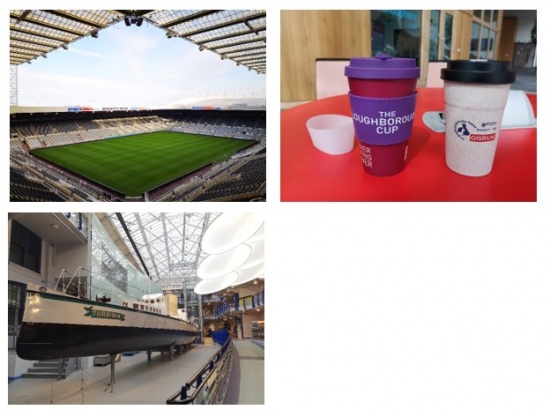
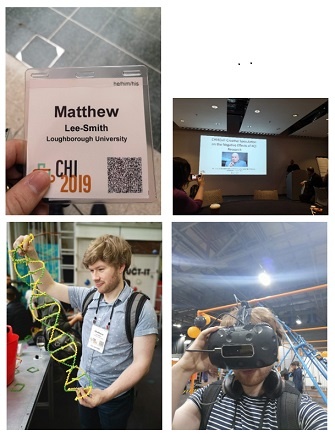 and over 3100 attendees. This was the first time the conference had come to the UK. The conference is world renown and a personal publishing target. The conference is sponsored by huge industry names such as Google and Microsoft. Matt provided us with a write up about his experience at the conference.
and over 3100 attendees. This was the first time the conference had come to the UK. The conference is world renown and a personal publishing target. The conference is sponsored by huge industry names such as Google and Microsoft. Matt provided us with a write up about his experience at the conference.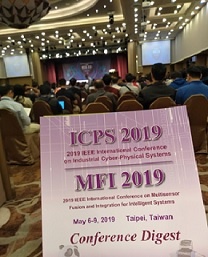 of May to present part of her research work.
of May to present part of her research work.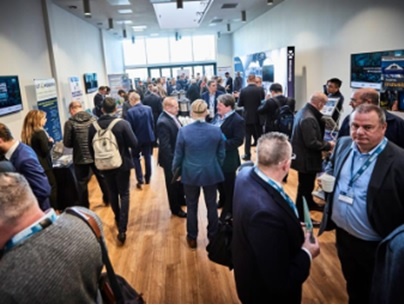 various short presentations on Asset Utilisation and Future Business Models. Then we had the choice of different ‘technology presentations’ held in separate rooms upstairs.
various short presentations on Asset Utilisation and Future Business Models. Then we had the choice of different ‘technology presentations’ held in separate rooms upstairs.